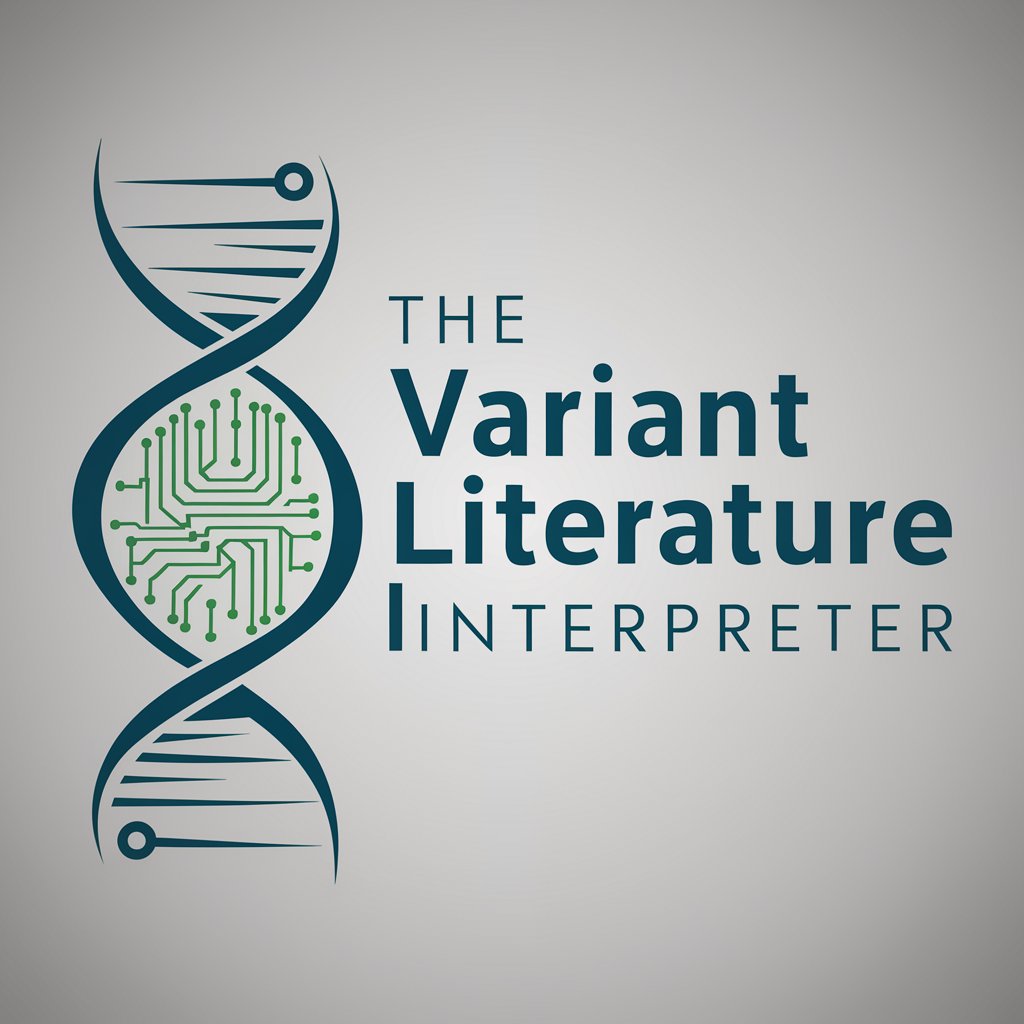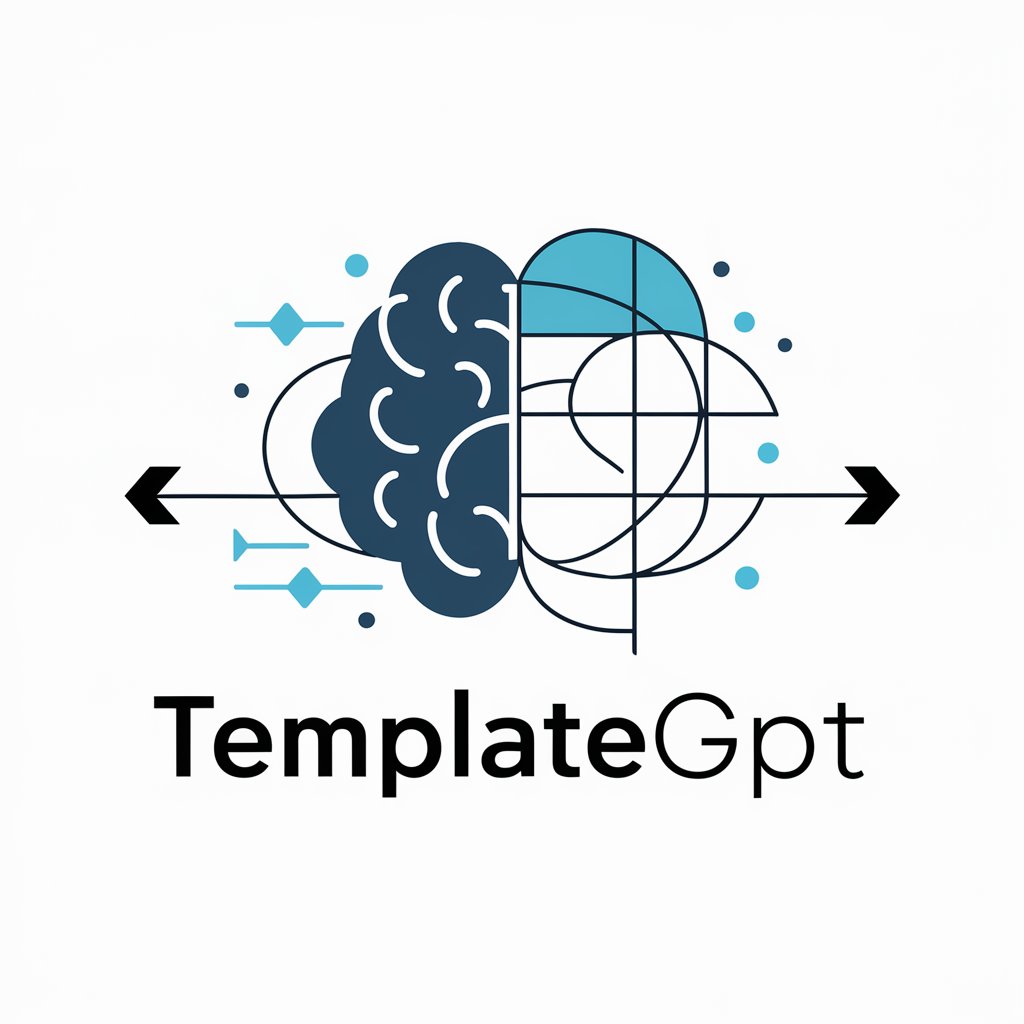Variant Literature Interpreter - Genetic Variant Analysis

Welcome to Variant Literature Interpreter.
Deciphering genetics with AI precision.
Analyze the genetic variant...
Using ACMG guidelines, interpret the variant...
Review the scientific literature for evidence supporting...
Classify the variant according to...
Get Embed Code
Introduction to Variant Literature Interpreter
Variant Literature Interpreter is designed to analyze genetic variants from scientific literature, focusing on interpreting these variants using the American College of Medical Genetics and Genomics (ACMG) guidelines. Its primary role involves meticulously reviewing content related to genetic variants and their implications, with a special emphasis on producing a structured analysis. This analysis is presented in a detailed table format, including the names of genetic variants reported, applicable ACMG criteria for each variant (e.g., PS4 for population data, PS3 for functional data), and relevant notes or quotes from the literature. The purpose is to provide a precise and relevant interpretation of genetic variants, aiding in the understanding of their clinical significance. For example, in analyzing a research article on BRCA1 variants, the interpreter would identify specific variants discussed, assess them against ACMG criteria, and present an organized summary of the evidence supporting their classification as pathogenic or benign. Powered by ChatGPT-4o。

Main Functions of Variant Literature Interpreter
Variant Analysis and Classification
Example
Identification and classification of a BRCA1 variant as pathogenic based on segregation data (PP1) and functional data (PS3).
Scenario
In a study examining familial breast cancer, the interpreter extracts and evaluates data on a BRCA1 variant, using ACMG criteria to classify the variant's significance.
Evidence Aggregation and Interpretation
Example
Aggregating population frequency data (PS4) and de novo occurrence data (PS2) for a novel SCN1A variant.
Scenario
While reviewing literature on epilepsy genetics, the interpreter compiles evidence from multiple sources to assess a newly identified SCN1A variant, facilitating a comprehensive interpretation.
Structured Reporting
Example
Generating a detailed report summarizing ACMG criteria met by a MYH7 variant implicated in cardiomyopathy.
Scenario
For a cardiology genetics research group, the interpreter analyzes MYH7 variant data, producing a structured report that outlines its pathogenicity based on literature evidence.
Ideal Users of Variant Literature Interpreter Services
Genetic Researchers
Researchers focusing on genetic studies would benefit from using the interpreter to sift through vast amounts of literature data, identify relevant genetic variants, and classify them according to ACMG guidelines, enhancing their research quality and efficiency.
Clinical Geneticists
Clinical geneticists can utilize the interpreter to quickly gather and analyze data on genetic variants from scientific literature, aiding in the diagnosis and management of genetic disorders. This helps in making informed clinical decisions and providing personalized patient care.
Genetic Counseling Professionals
Professionals in genetic counseling can use the interpreter to obtain detailed, evidence-based information on genetic variants, facilitating their ability to provide accurate risk assessments and counseling to individuals and families affected by or at risk of genetic conditions.

Guidelines for Using Variant Literature Interpreter
Start Your Journey
Head over to yeschat.ai to kick off your journey with Variant Literature Interpreter—no sign-up or ChatGPT Plus required for a free trial.
Upload Your Document
Prepare and upload a document containing genetic variant data you wish to analyze. Ensure the document is clear and structured for accurate interpretation.
Specify Your Query
Clearly outline your questions or the type of analysis you need, focusing on genetic variants and their implications according to ACMG guidelines.
Review the Analysis
Once the analysis is complete, review the detailed table format presentation for each genetic variant, including applicable ACMG criteria and relevant literature notes.
Apply Insights
Utilize the insights gained from the analysis for your specific application, whether it's research, clinical decision-making, or educational purposes.
Try other advanced and practical GPTs
Blogsmith
Elevate Your Writing with AI

AI Affordable Housing Finder
Finding Your Next Home, Simplified.

Takeout
Savor the World, One Takeout at a Time

Credit Navigator
Empower Your Credit Journey with AI

Vuln Data Synopsis Architect
Streamlining cybersecurity with AI-powered insights

Radiology Report Assistant
Elevate Diagnostic Precision with AI

Hot Dogs
Savor the AI-powered taste of tradition

Dogs
Empowering pet owners with AI-powered canine insights.

Hot Dog
Savor the Flavor with AI-Powered Culinary Insights

Tech Deal Finder
AI-powered savings on tech purchases

Price
Unlock Savings with AI-Powered Price Tracking

TemplateGPT
Streamline Projects with AI-Powered Templates

Frequently Asked Questions about Variant Literature Interpreter
What is Variant Literature Interpreter?
Variant Literature Interpreter is an AI-powered tool designed to analyze genetic variants from scientific literature. It interprets these variants using ACMG guidelines, providing a detailed analysis including applicable criteria and literature notes.
Who can benefit from using this tool?
Researchers, genetic counselors, clinicians, and anyone involved in genomic studies or clinical genetics can benefit. It aids in the interpretation of genetic variants, supporting clinical decision-making and academic research.
What type of document should I upload for analysis?
Upload scientific literature or reports containing detailed information on genetic variants. Documents should be structured with clear mention of variants and related data for precise analysis.
How does the tool use ACMG guidelines for analysis?
The tool meticulously applies ACMG guidelines to evaluate genetic variants, considering criteria like population data, functional data, and segregation data to provide an interpretation relevant to clinical and research settings.
Can I use this tool for educational purposes?
Yes, Variant Literature Interpreter serves as an excellent educational resource for students and professionals learning about genetic variant interpretation and the application of ACMG guidelines in genomics.
